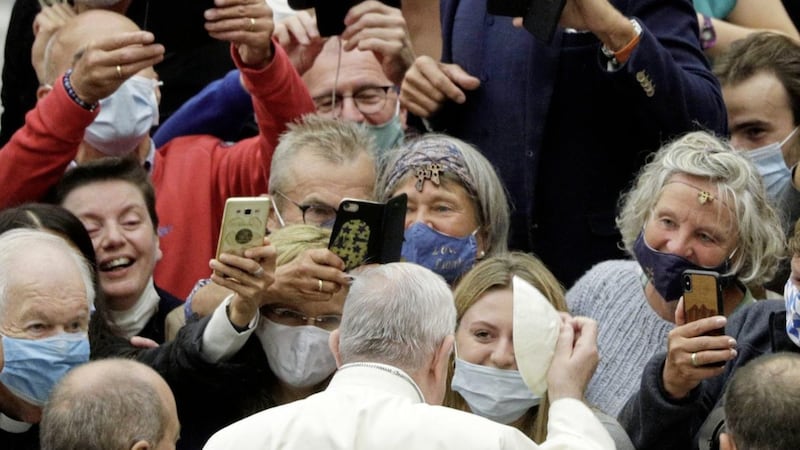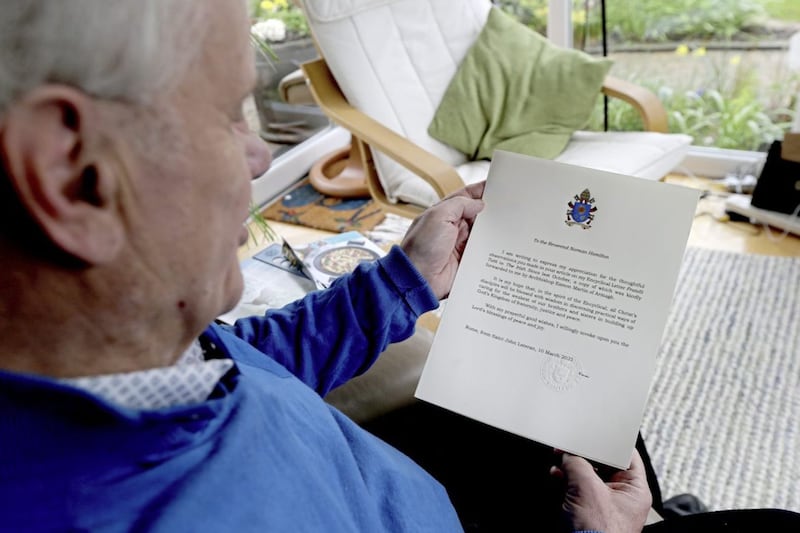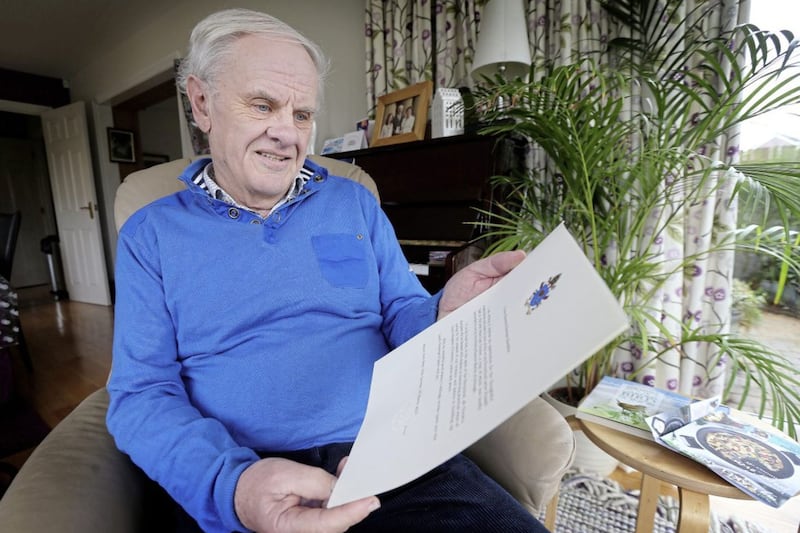HAVING worked my way fairly diligently through the 92 pages and 287 numbered paragraphs of Pope Francis's third encyclical, Fratelli Tutti, I was very impressed with his huge vision of a better and much fairer world.
He constantly explores themes of human dignity, fundamental human rights, the common good and solidarity across the world.
Two sections are particularly impressive. Chapter 2 is an extended and profound exploration of the parable of the Good Samaritan.
Under the title 'A stranger on the road', the Pope emphasises that, in an unhealthy society that turns its back on suffering and that is "illiterate" in caring for the frail and vulnerable, we are all called - just like the Good Samaritan - to become neighbours to others, overcoming prejudices, personal interests, historic and cultural barriers.
Another crucially important global theme (about which there has been remarkably little discussion here in Northern Ireland) is that of migration, where the Pope calls for "A heart open to the whole world".
He writes: "With their lives 'at stake', fleeing from war, persecution, natural catastrophes, unscrupulous trafficking, ripped from their communities of origin, migrants are to be welcomed, protected, supported and integrated.
"Unnecessary migration needs to be avoided, by creating concrete opportunities to live with dignity in the countries of origin.
"But at the same time, we need to respect the right to seek a better life elsewhere.
"In receiving countries, the right balance will be between the protection of citizens' rights and the guarantee of welcome and assistance for migrants."
The Pope is graciously clear on the limitations of his letter. He writes: "I offer this social Encyclical as a modest contribution to continued reflection."
Such humility is itself worthy of real appreciation, not least because locally and globally, few leaders seem to value this particular quality.
There is however a core difficulty with the encyclical. It is strong on analysis, but rarely is there any handle offered on how to bring about the massive changes envisaged.
For example, in paragraph 173 he writes: "I would also note the need for a reform of the United Nations Organisation, and likewise of economic institutions and international finance, so that the concept of the family of nations can acquire real teeth."
What would such reform entail? Who would initiate it? What resources would be needed to make anything significant happen? What would the "real teeth" look like?
I was also surprised, and frankly disappointed, at the almost complete lack of acknowledgement or appreciation of those groups and institutions who are seeking to travel in the same direction as the Pope wants us all to go
The challenges are vast, given that the UN alone has 193 states, and all have equal representation in its General Assembly.
Add to this his apparent call for reform in organisations such as the International Monetary Fund which brings together 189 countries, "working to foster global monetary cooperation, secure financial stability, facilitate international trade, promote high employment and sustainable economic growth, and reduce poverty around the world".
These are certainly not toothless organisations, as both Ireland and Greece found out the hard way after the financial crisis in 2008.
The family of nations was not idle - even if it meant that they showed 'tough love'.
I was also surprised, and frankly disappointed, at the almost complete lack of acknowledgement or appreciation of those groups and institutions who are seeking to travel in the same direction as the Pope wants us all to go.
There are countless organisations and charities, some of them international, which are working for social justice and advocating for the poor and vulnerable across the world.
For example, Christian Aid works to "fight injustice, respond to humanitarian emergencies, campaign for change, and help people claim the services and rights they are entitled to".
There are large multinational corporations seeking to do their business with a high degree of integrity.
Xerox has often been recognised as one of the world's most ethical companies.
Another example is the Ben and Jerry's which made sure that every possible ingredient in its ice cream was Fairtrade certified by 2011 in Europe, and in the United States by 2014.
They have also taken a clear stance on what they call the 'global refugee crisis' (and other causes).
Of course, none of these groups and companies is perfect, for they, like us, live and work in a fractured and sinful world.
But to ignore so many organisations gives no encouragement to them or to others to continue working for the same goals as the Pope wishes to achieve.
This is without doubt a very important letter from the leader of a Christian Church to a wider world (and indeed to Churches and faiths everywhere).
Yet the absence of any road map to help nations, institutions and communities get to where the Pope would like them to go probably means that it will always be left to 'somebody else' to get the show on the road.
In our present climate, where nationalism is ever more evident, that 'somebody' may sadly turn out to be 'nobody' in particular.
I genuinely long to be proved wrong, and that the God of the nations will raise up an army of men and women of faith and resilience to help make Fratelli Tutti more of a present and future reality... a taste, perhaps, of heaven on earth.
The Rev Dr Norman Hamilton is a former Presbyterian moderator.








